Christian Dailly was ready to sign the contract.
Another two years under the watchful eye of Dundee United icon Paul Sturrock at Southend United.
Dailly would be 41 years of age by the time that deal expired but, as a health fanatic enjoying a splendid autumn to his career, there was little doubt that he possessed the longevity.
“I was fit and playing well,” Dailly told Courier Sport. “But I was really into my studies and it was difficult to balance everything — my head was in the literature and it felt like a jigsaw I wanted to devote myself to putting together.
“I said to Paul Sturrock and the chairman, “I’ve actually changed my mind on the way down. I’m not going to sign the contract,” and I retired on the spot!”
Dailly had become completely engrossed in a sports science degree. He had undertaken the first two years while still playing, and was determined to give the final three years his undivided attention.
This was no mere Plan B; break glass in case of failure to become a coach or pundit.
He had found a calling.
In the years since his retirement, Dailly has leapt headlong into cutting-edge research on aerobic fitness, strength and nutrition.
Dailly coached athletics for a time, even working with Team GB representatives. He sought to educate on the dangers of “no pain, no gain” overtraining.
He now works with the general public after creating Zone 1 Health.
“We have seen people go into diabetes remission, go from having chronic pain to being pain-free,” Dailly continues. “We’ve got a guy who recently did his second Parkrun. Before that, he had two heart attacks and was scared to do any exercise.
“I have the same passion as I ever did working with athletes, so don’t miss that side of it.”
I felt different
Dailly is likely to be the only Courier Sport interviewee to discuss research on Neanderthal heel-bones and their relevance to long-distance running.
Or how the human body is akin to self-regulating complex weather systems.
Or to profess an interest in quantum physics.
“I like to find out how things function,” he smiles. “It’s good fun.
“It’s a bit unusual to have quantum physics books by your bed before football matches, like I did. People are looking at you saying, “really?” But I enjoyed them.”
Not the footballing archetype, certainly.
“I definitely felt different,” continued Dailly. “Not better or worse. I just felt like I was always looking after myself. It definitely made me a little but more isolated — but I was okay with that. That was who I was.
“Everyone was alright with me but you had all the players — all these different interactions and relationships — and I was over there. But that’s maybe why I could captain teams.”
He added: “I was too young to captain United, if I’m honest. But I went on to captain every team I played for, so maybe there is something about being “over there” that allowed me to speak and act freely.”
Instinct
Dailly’s curiosity has always been present.
But it did not extend to questioning his peers as he emerged through the youth ranks at Dundee United as a fresh-faced 16-year-old.
“I was inherently good and would think, “this person is my boss so he will definitely know the right thing to do”,” recalled Dailly, who scored in each of his first three games for the club while, in his words, “still playing on instinct”.
“With a scientific mind, I would go back and question everything I was told.”
Dailly would go on to play 177 times for Dundee United.
He scored 21 goals, lifted the 1994 Scottish Cup, was relegated, made captain, unmade captain, promoted and sold to Derby County for £1million. Eventful.
By the time he departed for Pride Park, Dailly was a fine centre-back. He would represent Scotland 67 times, play at the 1998 World Cup, win five major honours and reach the Uefa Cup final with Rangers in 2008.
But he still wonders how his career may have panned out if he had remained that waspish, instinctive striker who closed down Ally Maxwell at Hampden Park, admitting he felt “over-coached” with the Tangerines.
“There are parts of me that ended up better, but I’ll never forget that freedom I had when I just played,” he continued.
“There is a different world where I stayed that striker. I think I was over-coached, albeit with the best of intentions. I took everything as rules.”
And he would love to see emerging youngsters emboldened to retain their natural flair and problem-solving ability.
“One thing I learned about coaching — and I took this on board myself — is not to coach rules,” he continued.
“I think of strikers I played with during my career. Guys like Ally McCoist, Teddy Sheringham and Kris Boyd all did what they wanted. They ran where they thought the ball was going! They didn’t follow rules; their game was a natural evolution.
“One of the biggest problems in sport, generally, is that coaches can be far too prescriptive and ruin people. Telling people there is a “correct” running style, or a way to play football, or an amount of touches you should take.
“You’ve got to let people figure things out.”
Pure freedom
At this point, Dailly reserves a special mention for his former Scotland manager Craig Brown, who recently passed away.
“Craig Brown was brilliant for that,” added Dailly. “It didn’t matter if you were playing against Cafu — he’d say, “you’re better than him, run him all day and show him!”
“He was telling me that from the age of 14, when he was my manager with Scotland schoolboys. Schoolboy games? The World Cup? “Just you run, Christian”. It was so much fun. Pure freedom.”
Vivid
Chatting to Courier Sport in a suite at Hampden Park, scene of THAT triumph in 1994, Dailly appears genuinely taken aback when reminded that 2024 will mark 30 years since United defeated Rangers in the Scottish Cup final.
Time flies, and all that.
Dailly’s tireless harrying of Maxwell created the iconic winning goal for Craig Brewster, sparking wild celebrations among the Arabs as their interminable wait to lift the famous old trophy ended.
“The memory is so vivid to me,” Dailly adds.
“I can still remember making the decision to close down Ally Maxwell and that vision of my shot trickling across the goal-line and bouncing off the post; that panic, thinking, “it’s not going to go in.”
“Seeing Brewster come in and all the fans in the corner going mad was amazing. It was so special to take the trophy back to Dundee after all those years. It was a great time, and really well deserved.”
He smiled: “I’ve actually watched that game back a couple of times. I don’t generally watch many games back — I should have done that more in my career; I should have analysed and learned — but I’ve made an exception for that one!”
Dailly was speaking at the launch of the new M&S Eat Well, Play Well Report — in partnership with the Scottish FA. New research reveals only one in five Scots feel they have a consistently healthy relationship with food but lessons can be learned from football. Find out more HERE.
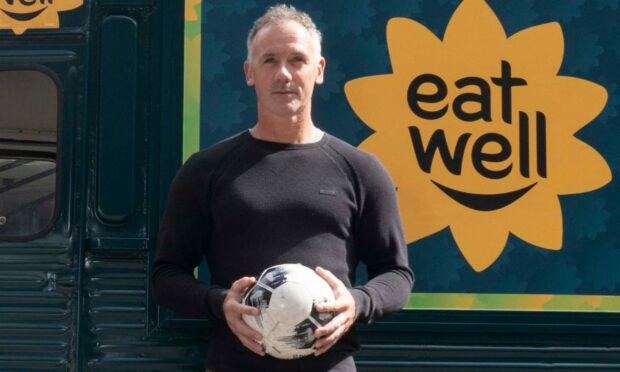
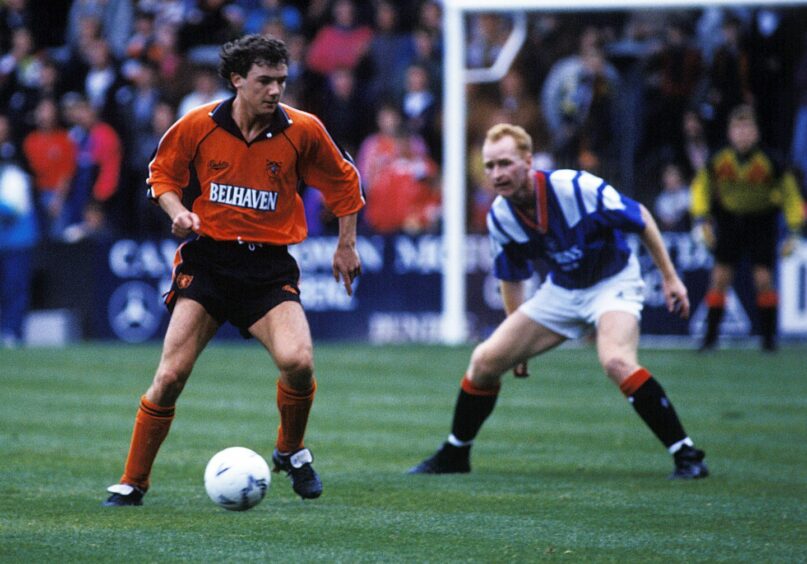
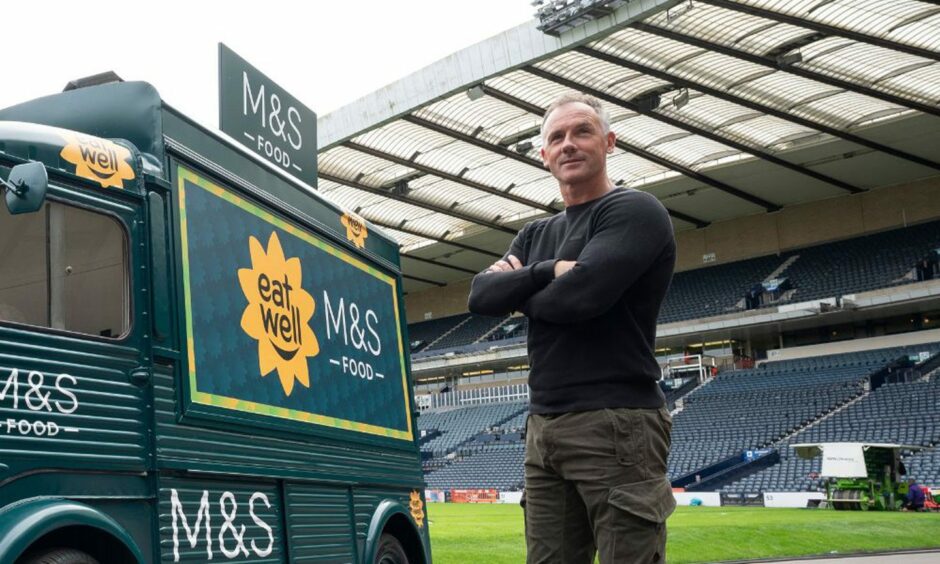
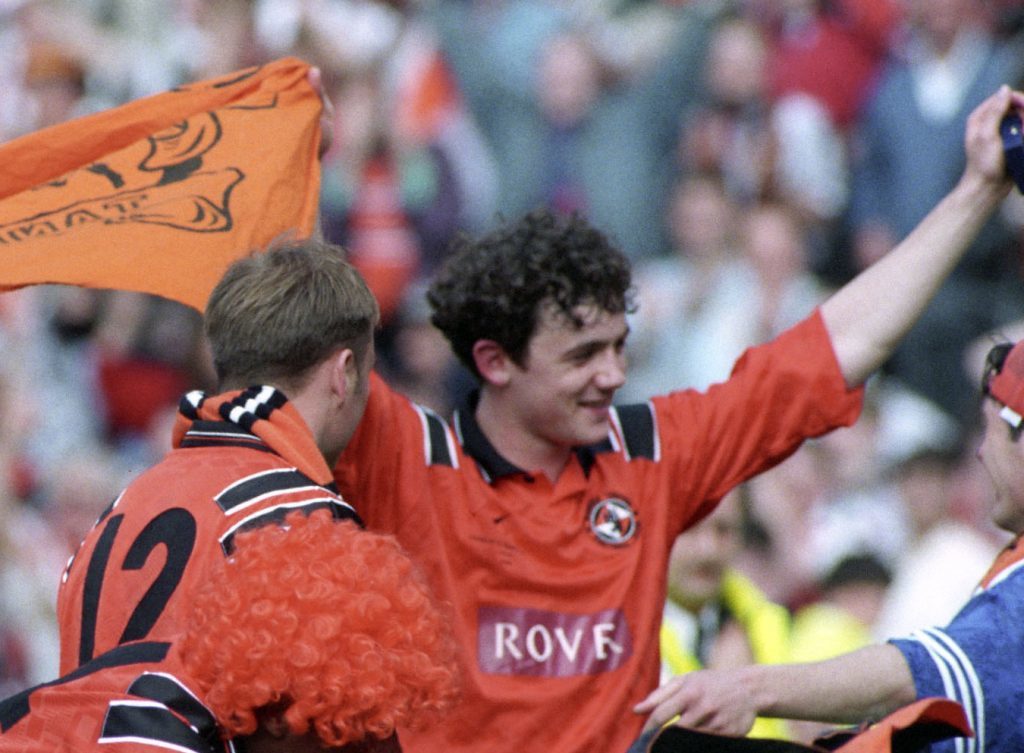
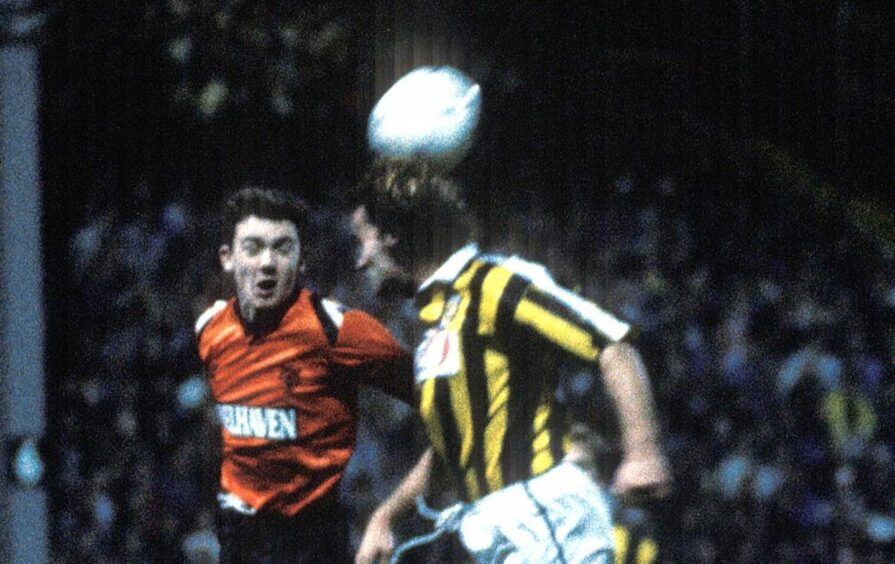
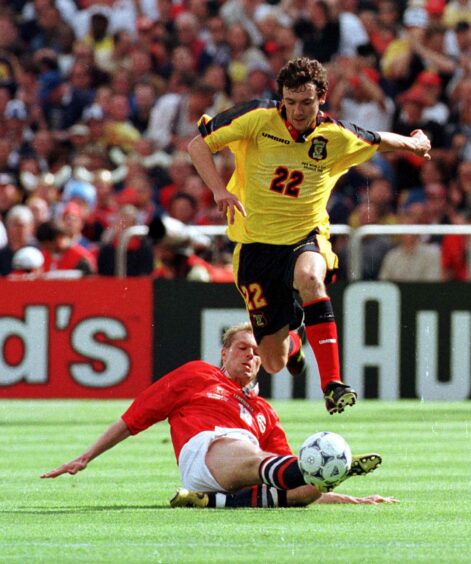
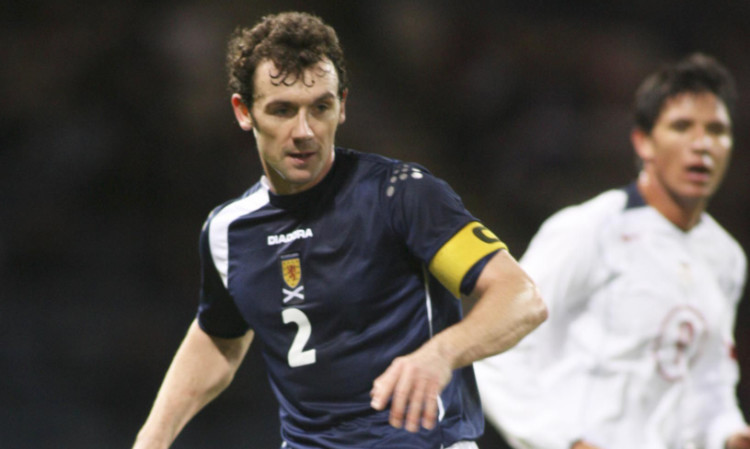
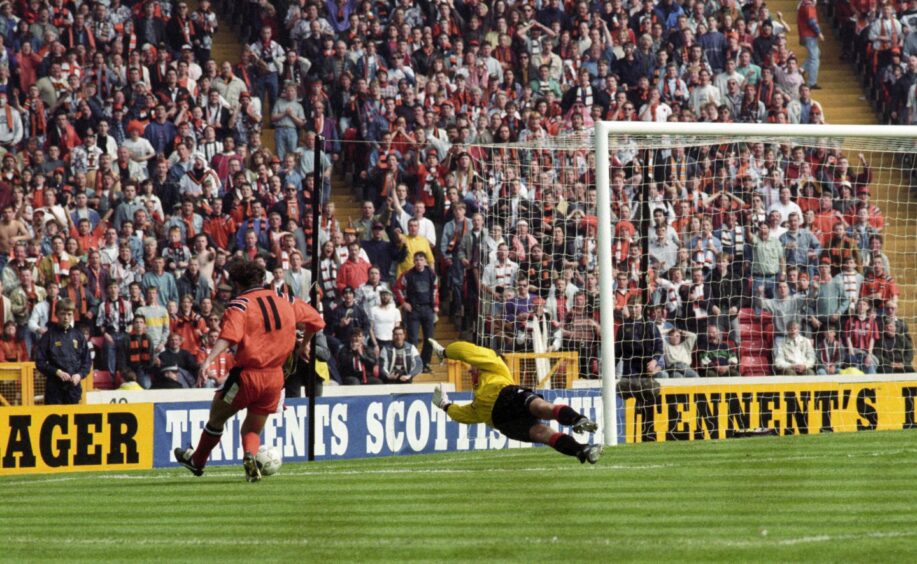
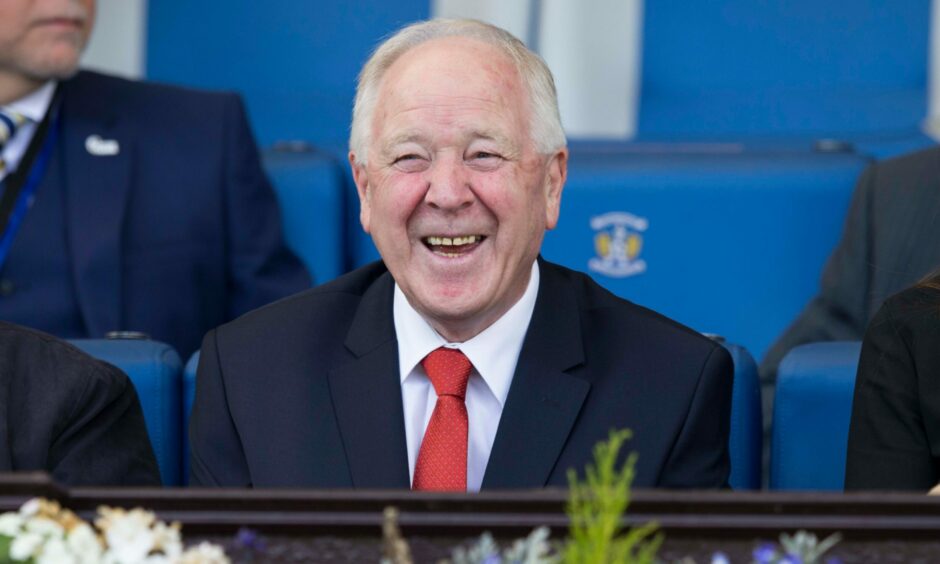

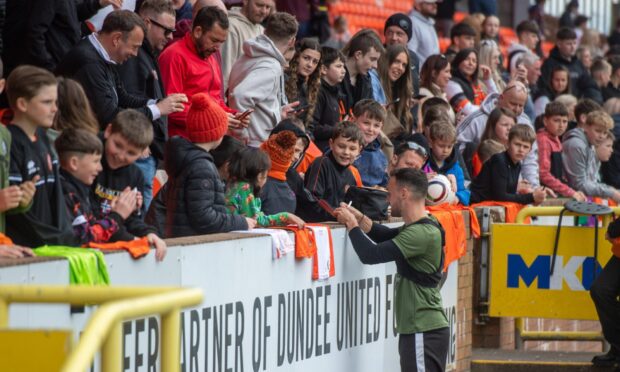

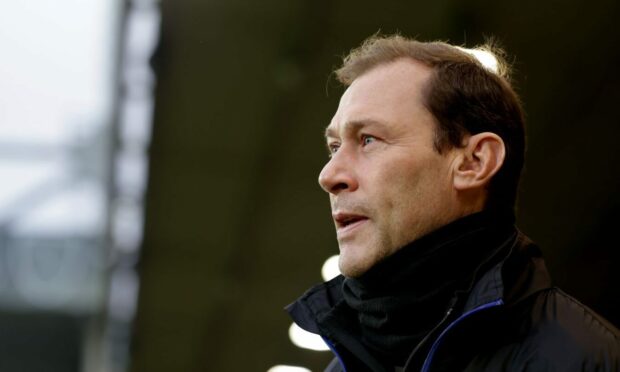




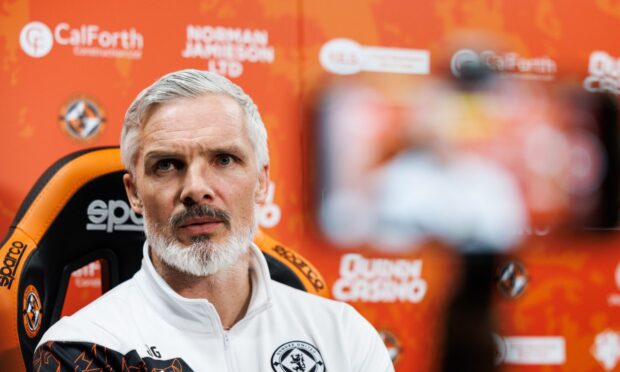
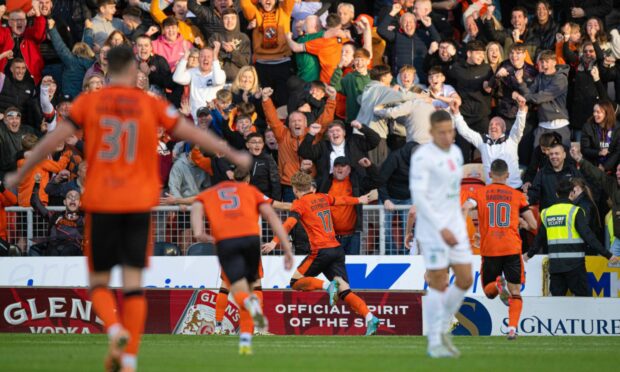
Conversation